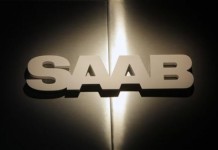Dutch luxury sportscar maker Spyker said it expected its newly acquired Saab business to be profitable by 2012, with the former General Motors unit giving it a rare opportunity to develop a global brand.
Sweden’s Saab “will be repositioned towards an independent performance-oriented niche car company with an industry-leading environmental strategy,” Spyker said in a statement late Monday.
Saab’s business plan will require some one billion dollars (715 million euros) in funding “in advance of the return to profitability, forecast to occur by 2012,” Spyker said.
GM will provide 326 million dollars, with 400 million euros coming from the European Investment Bank and the rest from bank sources, it added.
“With this financing in place, the business plan does not envisage any future funding being required, neither from Spyker or elsewhere, for Saab to return to profitability,” Spyker said.
“The business plan targets (annual) car production and sales at or below historical levels of 100,000 to 125,000.”
Giving details ahead of a planned shareholders meeting on February 12, Spyker said it would change the name of the company to Saab Spyker Automobiles NV, which will “operate Spyker and Saab as two separate operating companies.”
It said Saab will be a “stand-alone niche manufacturer” with three to four model lines — the existing 9-3 model series, the 9-5 and the 9-4X.
It will also “investigate the potential of adding a fourth smaller car line (the 9-1) in due course provided that the positive development of the smaller car segment continues.”
Saab will continue to compete against the Audi and BMW marques “as a premium brand, leveraging its strong and unique brand heritage.”
Saab’s future had been in doubt through 2009 as GM, going through bankruptcy, radically restructured its business and tried to sell of what it saw as non-core and unprofitable assets.
The sale to Spyker, a minnow in the global auto industry, was finally reached only late last month after agonising negotiations.
In the first quarter of 2009, Spyker manufactured 21 cars and sold 23, with a workforce of about 90 assembly workers while Saab has 3,400 employees in Sweden alone.



